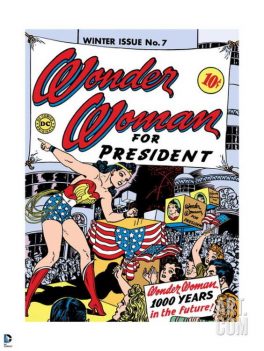
In 2017, New York State will celebrate the centennial of women’s suffrage. The State ratified the right to vote ahead of the Constitutional amendment in 1920. Last year a Women’s Suffrage Centennial planning session was held in Seneca Falls/Waterloo. People from around the state attended. One concern, but not the only one, was to obtain funding for the celebration. The State’s notorious minimalist approach to honoring state cultural heritage tourism and history rendered such efforts problematic at best beyond tokenism. The eventful conference was reported on in a post here. A second conference was recently held at the same location and will be reported on in subsequent posts.
By coincidence, the Women’s Suffrage Centennial will witness the first year of the first woman president of the United States. One wonders what the women’s rights advocates who gathered in Seneca Falls beginning in 1848 would make of that occurrence and the president herself.
The women’s rights movement was about more than the legal action of gaining the right to vote. It also addressed more general philosophical, theological and economic issues about the nature of woman, about what it means to be a woman. This topic may be addressed on two levels, the secular and the religious.
On the secular side, the new science of geology had opened an extended window into the past. The traditional 4004 BCE date for the origin of the earth as calculated by Bishop Ussher no longer seemed reasonable given the new discoveries being made in geology. The 1820s marked the diluvial decade when scientists who also were often theologians searched for rocks relocated by Noah’s Flood. The Erie Canal, the hundreds of miles long ditch, became part of the search. Erratics were deemed proof of the Flood’s power until the theory of glacial ages was first proposed in 1837 by Louis Agassiz.
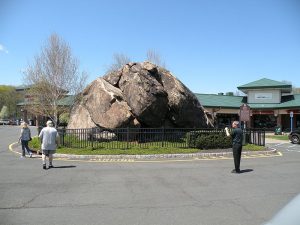
New time periods were designated to fill the void. These included such now well-known periods as the Stone Age, the Bronze Age and the Iron Age. So what was human life like during these early years? The Women’s Right Movement had an answer.
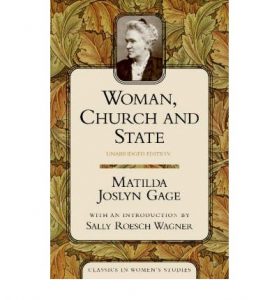
Women ruled the earth at the dawn of human time! Or so it was claimed. Matilda Joslyn Gage in 1893 published Woman, Church and State: The Original Expose of Male Collaboration Against the Female Sex. Chapter I is entitled “THE MATRIARCHATE.” According to the Table of Contents, the chapter covers the following:
Tendency of Christianity from the first to restrict woman’s liberty. Woman had great freedom under the old civilizations. The Matriarchate; its traces among many nations; it preceded the Patriarchate. The Iroquois or Six Nations under reminiscences of the Matriarchate. Government of the United States borrowed from the Six Nations. To the Matriarchate or Mother-rule, is the world indebted for its first conception of “inherent rights,” and a government established on this basis. Malabar under the Matriarchate when discovered by the Portuguese. The most ancient Aryans under the Matriarchate. Ancient Egypt a reminiscence of the Matriarchal period. Authority of the wife among the most polished nations of antiquity. As Vestal Virgin in Rome, woman’s authority great both in civil and religious affairs. Monogamy the rule of the Matriarchate. Polygamy, infanticide and prostitution the rule of the Patriarchate.
This post is hardly the place for a book review of Gage’s work. Suffice it to say here, Gage presents a view of matriarchal life which was squashed when the patriarchy emerged [often dated archaeologically to c. 3000 BCE elsewhere with the rise of the civilizations in the ancient Near East].
Gage did not originate the idea of the matriarchy. As it turns out the leading practitioner of the idea of the matriarchy was a man. Jahann Jakob Bachofen had revived the idea from classical Greek sources in 1861.Conversely to Gage’s viewpoint, the men in the 19th century who advocated the idea of a matriarchy in ancient times did so based on the belief that the its cessation led to an evolutionary advance with the rise of the patriarchy. So one person’s “fall” originally had been another person’s advance.

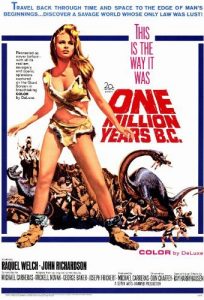
Choose your past.
Either way, both were wrong. The idea of the matriarchy in ancient times is an example of presentism addressed in a previous post. People in the present concoct a vision in the past of the way they wanted it to be then and proclaim it as the truth. Bluntly put, regardless of your point of view about women’s rights, the matriarchy in the before time never happened. It is wishful thinking and its advocacy automatically renders suspect anything else the person might claim even if true. For more on this subject see, Cynthia Eller, The Myth of Matriarchal Prehistory: Why an Invented Past Won’t Give Women a Future.
The better known effort to redefine the nature of woman has occurred on the religious front with the story of the Garden of Eden. Male ministers disrupted the third National Woman’s Right Convention held in Syracuse in 1852. The reason was the proposed resolution claiming that the Bible recognized the equality of men and women. One of the oft-quoted texts to prove the male claim is from the Garden story:
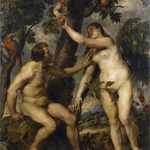
To the woman he said, “I will greatly multiply your pain in childbearing; in pain you shall bring forth children, yet your desire shall be for your husband, and he shall rule over you.” (Gen. 3:16)
This verse put the women’s rights advocates in a bind. On one hand, they could dismiss the Bible as an authoritative text meaning what difference did it make what the Bible said. On the other hand, they could accept the Bible as authoritative but claim its meaning had been misunderstood. The latter meant confronting the interpreters of the Bible on their own turf with the story of Adam and Eve in the Garden being the primary battlefield.
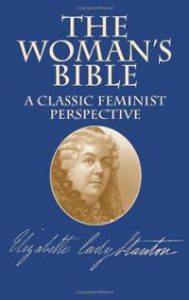
Elizabeth Cady Stanton sought to no avail to create a group of women versed in biblical languages to write a new translation of the Bible replacing the familiar King James Version. Stanton learned Greek and Latin and responded to the new English translation in 1881 called the Authorized Version. She did so by writing The Woman’s Bible which was less of a commentary in the academic sense than a polemic against the verses she deemed most harmful to woman. She claimed that the “curse of Eve’ really did not become part of Christianity until Augustine in the 5th century and that it was used by men to perpetuate the patriarchy.
Gage’s book besides promoting the matriarchy, criticized Christianity for retarding the development of civilization instead advancing it. For Gage, the Garden Story was the cornerstone of the oppression of women by the Christian Church, a position that placed her in agreement with Stanton. Such views probably contributed to the diminishment of their stature in women’s movement compared to other better-known figures who took a less adversarial position towards the biblical story. For more on this subject see Pamela J. Milne, “Feminist Interpretations of the Bible: Then and Now (Bible Review 8 1992:38-43, 52-54).
Times have changed. Phyllis Trible, my own instructor in “Introduction to the Old Testament” in grad school, has championed a re-interpretation of the Garden Story to promote a more positive image of Eve. However, the Bible does not command the same importance in American culture today it once did. When women seek to discuss the models for female life they have other models besides Eve. Xenia, warrior princess, and a slew of superheroes from the comic book universe among others provide a multitude of figures through which the topic can be discussed. Regardless of the female figure chosen, the message has been a clear one from the 19th century through the 21st: women should not be defined through their husbands, they can be successful in their own right.
But without the 22nd amendment there wouldn’t be a woman president of the United States. The post-FDR amendment limits a person to two terms in office. Now consider the situation in 2000. At that time, the two-term president was a young man in presidential terms unlike Eisenhower and Reagan, the other two-term post-FDR presidents. In addition, the one and only job he ever wanted in his life was to be president unlike Eisenhower and Reagan who both had non-political careers before entering politics. There should be no doubt that without the 22nd amendment, the first Democratic two-term president post-FDR would have sought a third term.
Suppose he had lost. Then what? When he lost in Arkansas, did he give up? Did anyone suggest his wife should run instead of him? Of course, not. He ran again. Without the 22nd amendment he would have run for president as many times as he physically was able to do so. He would have become President for the Rest of His Life or until Retirement if legally permitted to do so. He would have run more times than Henry Clay, more times than Daniel Webster, more times than William Jennings Bryan, more times than Adlai Stevenson. He would have run so many times it would have become impossible for anyone thinking of the presidential election not to think of him. And at no time would anyone entertained the thought about his wife running instead of him especially since he was the far more gifted politician.
But because of the 22nd amendment that didn’t happen. Instead we have plan B. Forget the matriarchy. Forget revising the interpretation of the Garden story. Forget about woman not being defined through her husband. Forget about the noble ideals of the Woman’s Right movement about the nature of woman. Forget about not being derivative of a male character. England may have Margaret Thatcher and Theresa May, Germany may have Angela Merkel, Israel may have Golda Meir, but America has Plan B, the woman who became president because her husband no longer was allowed to under the Constitution. Will America ever have a female president in the real world who is elected on her own and not as Plan B because her husband wasn’t allowed to run? What do you think?






So then you’re saying that when Donald cries that the election is rigged, he’s correct?
“By coincidence, the Women’s Suffrage Centennial will witness the first year of the first woman president of the United States.”
I did mean it is a coincidence.
It’s a coincidence there is a woman RUNNING for president, to my knowledge the voting hasn’t happened yet.
Some voting already has occurred but you are correct that the final voting has not.
Good timing! I’ll try to get it out tomorrow.
Michael
Thanks, Michael for disseminating the post. The timing was purely coincidental to the FBI news.
Discontinue. Don’t think the voting has happened just yet…
Actually, millions already have voted. As a reporter, you have to wait until after the event before reporting it, as an oped blogger, I don’t have to. As per your request you have been removed from the IHARE distribution database.
Without the 22nd Amendment….. and hopefully there won’t be a female POTUS this coming year either — lol…. but it was an excellent article, Peter.
Lynn S. Beman
Discontinue. Too Liberal and too political, with the history interspersed – don’t need to hear it…
I agree with the observation that history is interspersed with the political. Without this election, I never would have made the connection. Imagine if the first female president achieved office on her own and not because her husband couldn’t run. But I am not sure what makes the post “Too Liberal.” Anyway, as per your request you have have been removed from the IHARE distribution list.
And I have searched all biblical references to the Adam and Eve story and have never yet found a definitive statement as to who was supposed to do the dishes.
That’s because they didn’t have dishes then. They just picked the fruits and ate. There was no hunting in the garden.
Peter,
Don’t you mean the 19th Amendment?
Jack
No, Jack. I meant the 22nd which limits the number of terms a person may be president. The issue here is not women’s suffrage but that without the 22nd amendment, the husband would have continued to run and no one ever would have thought about the wife running instead. She is a candidate because her husband can’t be one.
Unfortunately Pete there is still no woman president.
Not that I liked or trusted Hillary. She was a poor candidate. If Sanders was running it would have been a walkover. The DNC did democracy a disservice by its gyrations during the primaries. Many probably did not vote because of this (something like 7% less than last election). Others who were against political machines voted for Trump – may have voted for Sanders. I work for the Dems and voted WF party out of disgust. (though many were the same) Even in the town – Dems – had a clerk who refused to issue gay marriage lic. and quit. Then they nominated her for town council – more disgust.
Trump is however more disgusting.
Dave Cornelius
The unexpected results of the election even to the winner provide an opportunity to think about what went wrong. Maybe she will learn something before she runs again in 2020.